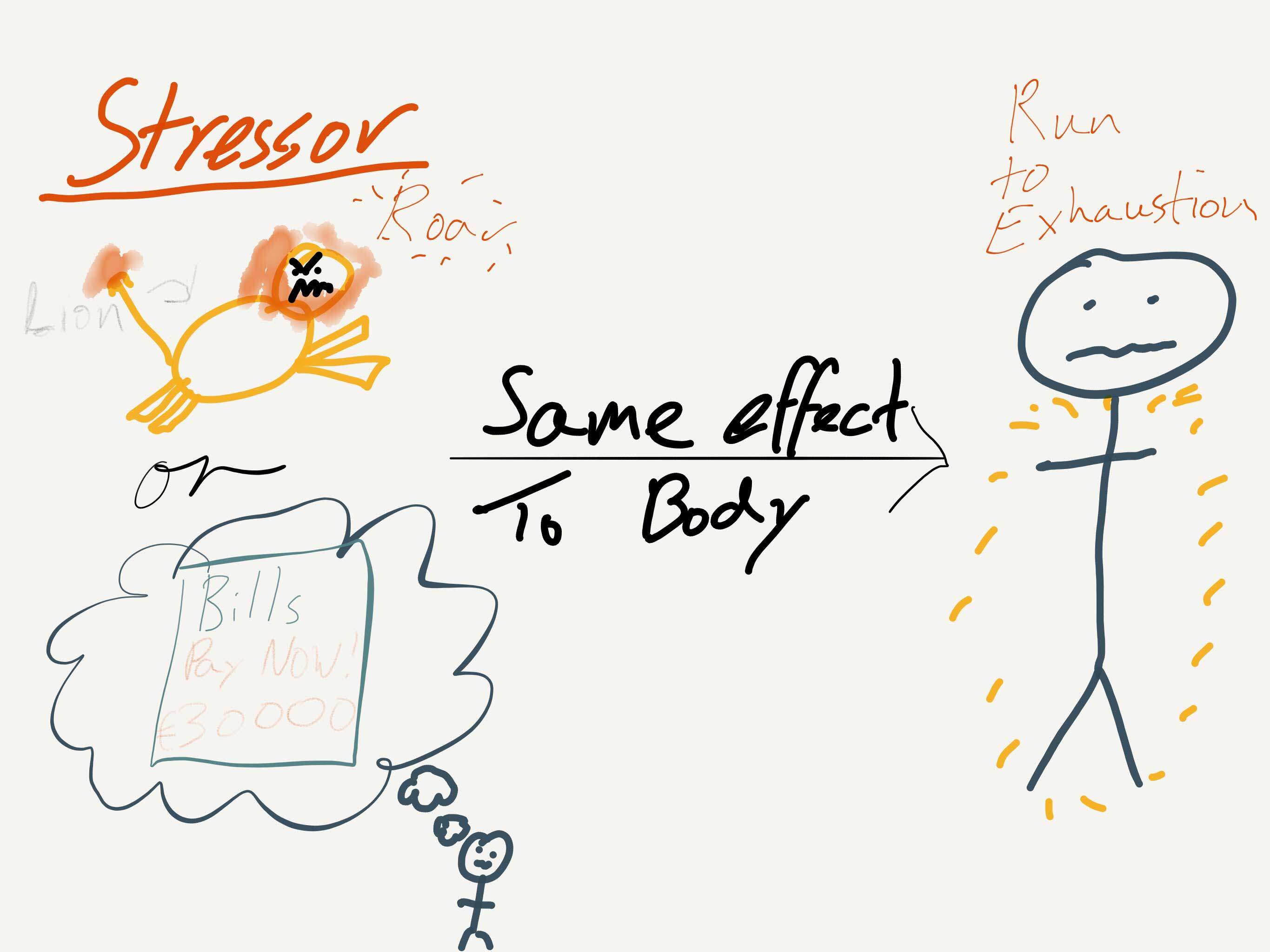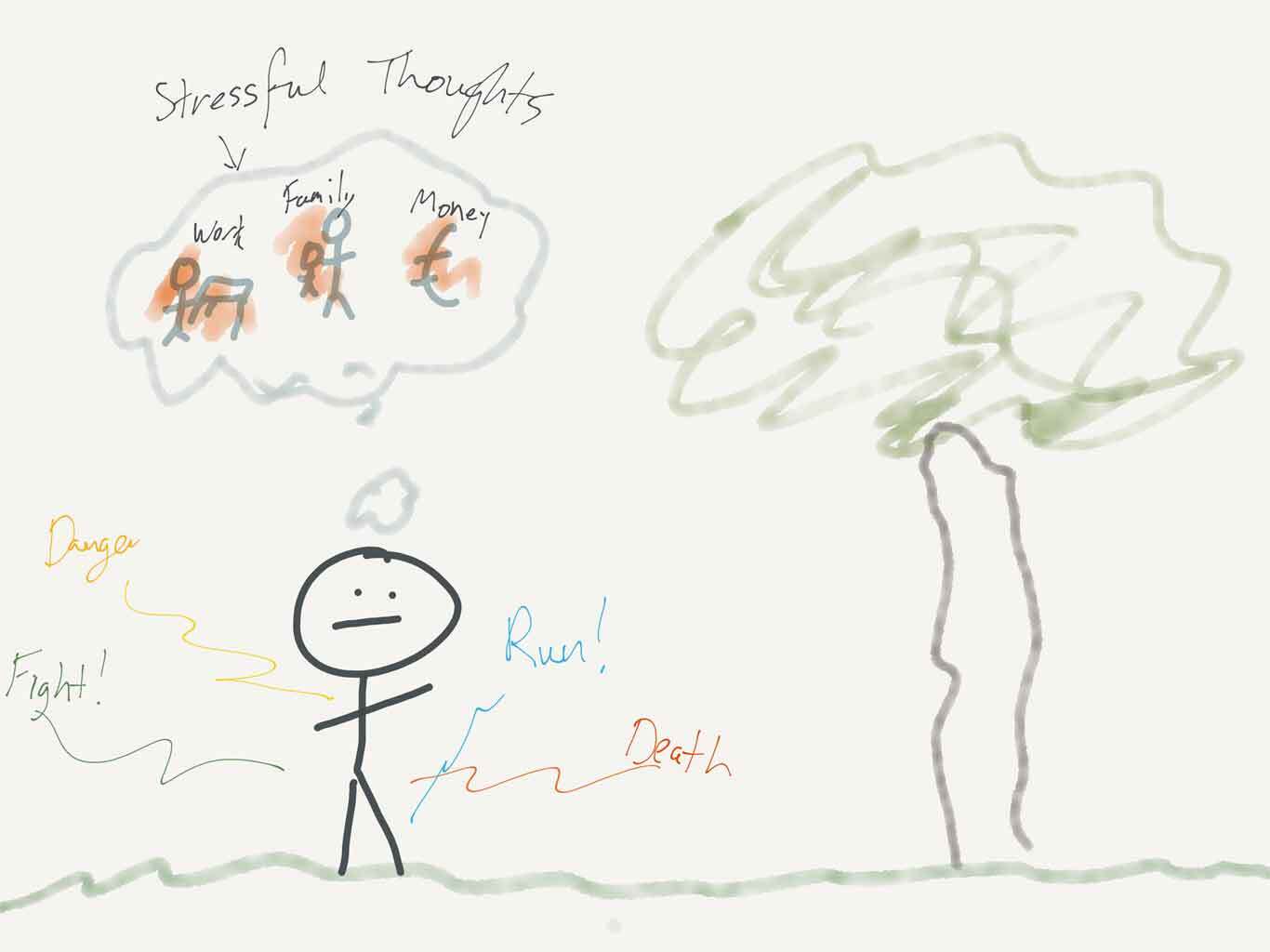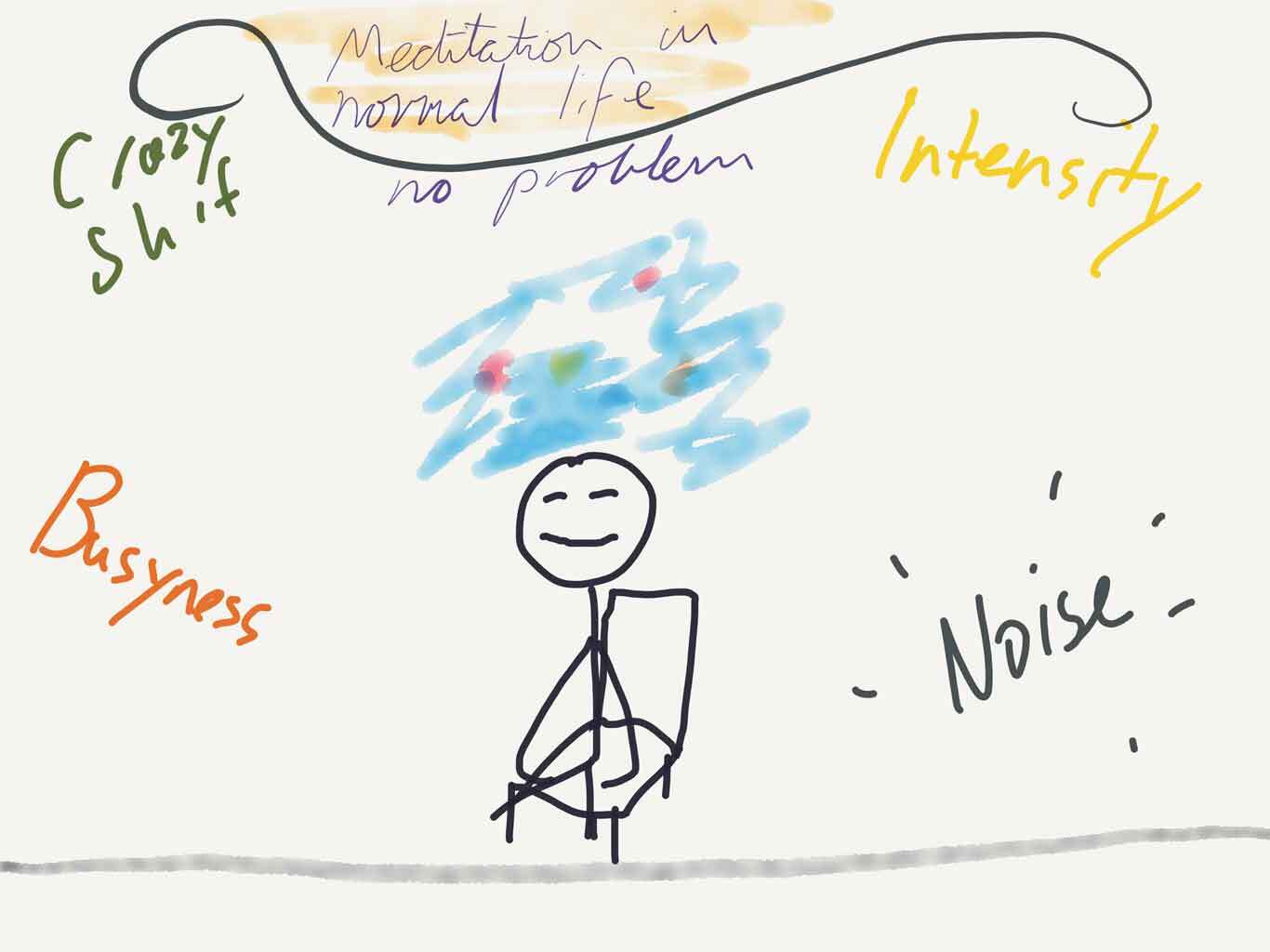Meditation for stress
– Quick Overview –
Why we can always feel stressed
Stress in many ways, is a symbol of our times.
Everybody seems to be experiencing it to some degree, talking about it, or warning against it – but what is it actually? And how does it affect our minds, bodies and lifestyles?
Well, humans are special in the animal kingdom.
We have a unique ability, (partly thanks to our brain’s developed prefrontal cortex) to make ourselves stressed simply by thinking about a problem imagined in our future.
For your average mammal, this isn’t an issue. Stress in animals generally arises in direct response to a stressful event – namely, something is going to eat you … or you’re trying to eat something that wants to avoid being eaten.
For most animals, stress doesn’t last. Stress is a rare, sudden, and often fatal event.
Humans aren’t (or perhaps are?) that lucky. Progression in civilisation over at least 10 000 years has lead our stress can be constant, endless, nagging, and often – ever present.
But as we’ll see, this new kind of unique “Imagined stress” can eventually become a fatal event for us too.
So much so, that at the end, you may even want to trade places with an everyday four-legged herbivore, simply chewing grass on the endless planes of the African Savana ….
Luckily, although often seemingly impossible, there are ways to manage your stress smarter.
As a little hint …
As always, it’s about working with the same weird & wonderful human brain, (… with its evolved, over-reaction hardware) that gave us all these stress problems in the first place.

How Stress Affects Our Bodies & Minds
Remember back to the last time someone jumped-out from around a corner and scared you stiff?
In that moment, you were suddenly wide awake, focused, and you could feel every fibre in your body. But what is it, exactly, that makes us feel and react that way?
The Autonomic Nervous System.
The autonomic nervous system is what controlls all of our involuntary body functions. When you blush, breathe, have goosebumps, or an orgasm – this is the autonomic nervous system in action.
The autonomic nervous system is made of two important parts. The sympathetic nervous system, and the para-sympathetic nervous system.
In short – sympathetic nervous system controls (what medical students jokingly term it) the four F’s … Fight, flight, fright and fu … uh, fornication [Things like anxious energy, fear, stage-fright, and reproduction are all the work of the sympathetic or “stress nervous system”.]
For the rest, it’s the parasympathetic nervous system – and it controls more relaxed activities … growth, energy storage, digestion … working on the immune system … sleep and deep rest.
Here’s the catch.
These two systems work in opposition to each other.
You can’t have both running at the same time.
Now we have a problem
When under stress, your body values short-term, high-cost actions – and it quickly dumps any long-term projects.
Things like organ & tissue repair, proper digestion, sex drive, energy restoration (sleep), immune system function are all stopped dead in their tracks, or are greatly inhibited.
When your body thinks it’s going to be killed & eaten in the next 30 seconds, it’s focus on you lasting the next ten years goes out the window.
Want to enjoy a walk in the park with your partner? Want to get a good nights sleep before a presentation or exam? Want to stay healthy, fit, present, fun and relaxed … ?
… your body constantly reacting like you are seconds away from a horrific, life-ending event isn’t going to help.
It’s going to make you feel low on energy, distracted, and emotionally drained.
It’s going to bring about a greater chance for heart attack, blod clots, diabetes, depression, cancer and stroke. And that’s only to name a few.
Stress is helpful.
Simply not at the levels that most of us experience in the modern world.

Steve R
Meditation & Stress
The good news is that meditation isn’t going to completely take away your stress.
If meditation could completely remove stress, it also wouldn’t be healthy.
You’d simply become a mindless, drooling mess, hardly able to drag yourself of the floor.
Stress can simply be the experience of being challenged or fully alive
You need stress to interact and engage with the world – it’s only when we become overwhelmed by our stress, that stress becomes a problem.
Meditation is a unique mental practice in many ways, but one of them is that not only does it reduce stress by activating the parasympathetic nervous system, (the relaxation nervous system to do with physical & mental recovery, immune system and digestion) it also, though the process of training the brain, increases our resistance to stress.
This means that meditation isn’t only a way to escape stress for a moment – it’s actually a way for us to handle more of it – to handle more of life.
That’s what makes us at Daily Meditation Berlin so excited to teach this ancient practice of meditation in our unique way. It’s not about killing stress and sitting on a mountaintop somewhere, (although that might feel appealing sometimes) it’s actually about being able to handle more of work & life.
For us, meditation is about making you physically and mentally strong enough to live the best life you can.
To be a better part of the world, not to run away from it.

Scientific benefits of meditation for stress management
Over the last few years, we’ve seen a worrying increase in the use of scientific studies used to convince people to buy courses/start diets/avoid lifestyles.
You probably have too.
For us at Daily Mediation Berlin, this goes against our principles of being as honest and transparent as we can.
Anyone who’s read a research paper will tell you that nothing is a certainty – what is true to current understanding today, can be false tomorrow.
The benefits of meditation on stress have been studied, and the results have been very promising, but finding the truth is your own journey – so if the science interests you, check out google scholar here.